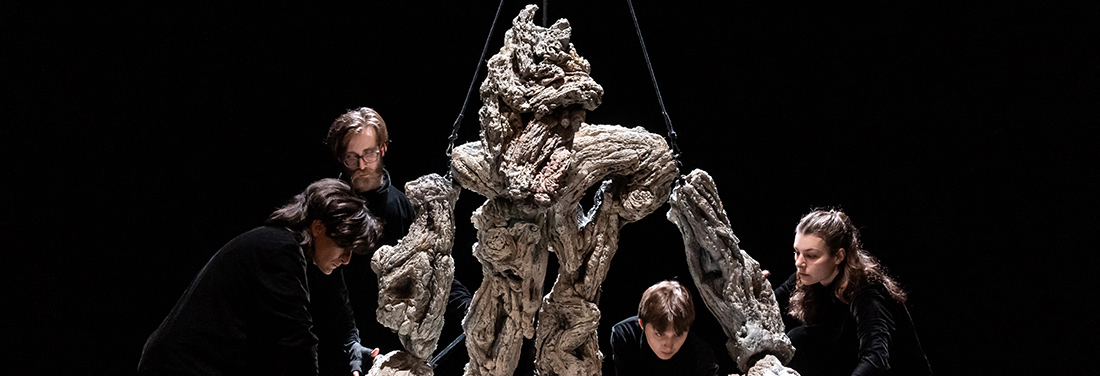
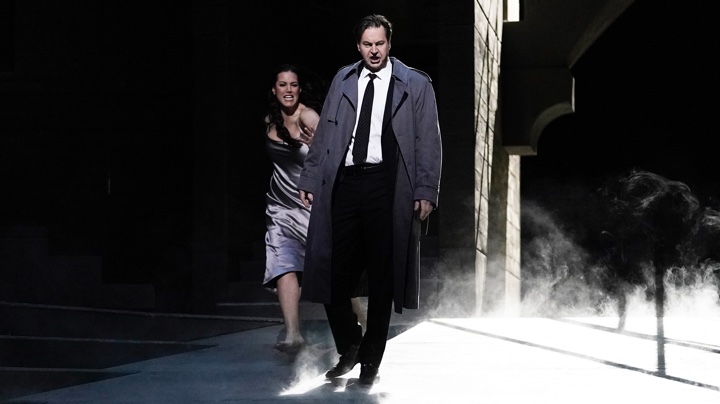
Delayed by the pandemic, the long-planned production by the Belgian director Ivo van Hove—who has proved one of the only European avant gardists to find a foothold on the Broadway stage—was at its best electrifying. The cast, led by conductor Nathalie Stutzmann, were in top form all night, singing with vocal intensity and glamor rarely found in Met Mozart.
The set was a brutalist cityscape in miniature; three towers of concrete rising from a vertiginously raked stage, punctured by rows of dark, empty windows showing glimpses of neat concrete stairs. The effect was imposing: Escher-esque, albeit also a little parking garage-esque.
Don Giovanni’s setting is curiously dislocated. People are constantly coming and going, and rarely to or from locations that make much grounded sense. As a result, the opera often lends itself to set designs that employ the aesthetics of boundaries: doors, windows, corridors. Michael Grandage’s previous Met production of Giovanni, for example, which was also heavy on doors, had so nonspecific a setting as to be dramatically inert. At times, van Hove and his set designer, frequent collaborator, and husband Jan Versweyveld’s concrete jungle risked a similar fate.
The singers were plenty active—they dashed up and down the stairs, they risked rolled ankles as they rushed about the steeply inclined downstage—but in the opera’s first half, I found myself recalling the harrowing immersion I felt at van Hove’s production of The Crucible.
There, and elsewhere in his work, van Hove has honed a theater aesthetic that uses realism to shock and unsettle: We don’t expect to see the same overhead fluorescent lighting on stage that we sit under in our office, and we don’t expect to see the same desks on stage as in our classrooms. When Versweyveld’s meticulously specific sets inevitably fracture and break, we fear our own world fracturing too.
For most of Don Giovanni, van Hove and Versweyveld have foregone their signature uncanny realism in favor of a stylized urban setting that is as intentionally anonymous as it is vaguely familiar. And yet—without giving too much away—the opera’s climax was an intensely-felt return to van Hove at his best, the style I like to think of as “nervous system theater” for the way it bypasses your brain to thrum directly at the parts of your body that feel fear, anticipation, and relief.
The set was further helped by Versweyveld’s subtle, beautiful lighting design. Slanting in at new and unexpected angles, the lights drew constantly shifting perspectives from the slabs of gray. In this, they were not unlike Peter Mattei’s Don Giovanni, also a figure who shifts meaning relentlessly. One of Mattei’s strengths in this role, which he has played now for decades, is the incredible control he exerts over the character’s flickering contradictions.
Don Giovanni can be by turns menacing and pathetic; what makes Mattei’s Giovanni so particularly good is the way he conveys the menace of patheticness and patheticness of menace. He can neither be aggrandized as a seducer nor dismissed as a failure, only experienced for what he really is: the avatar of a cult of male power that is as dangerous as it is ridiculous.
Like a sommelier of male entitlement, Mattei paired with precision moves from a wide-ranging vocabulary of gesture: a frustrated flip of his hair, a posture of looming dominance, an off-the-cuff-gorgeous vocal flourish, a somersaulting pratfall, a desperate lunge, a solicitous smile, a hand moved through the air with total confidence that it will find its end-point on a woman’s body.
The other thing that makes Mattei’s Giovanni so particularly good is, of course, his voice, a voice so absurdly beautiful, so smooth, honeyed, and luxurious it is almost shocking. It’s a voice you want to fall into—the low, intimate second verse of “Deh vieni” had the whole audience leaning closer to hear more. Even his howls of pain in the last scene had a kind of irrepressible glamor.
Careful, however, lest you lean in too far. You won’t be caught by the wild and whirling Mattei, too busy bounding like a gazelle from concrete stair to concrete slope (he’s 6’4”! Can you tell I have a bit of a crush?) but, more likely, by Adam Plachetka’s mildly dour Leporello. He was a little anonymous, present vocally, but with a lowkey, slightly disgruntled affect that had little to say about who Leporello was, and why he remained so tied to such an irredeemable boss.
Of course, if the harshest thing you can say about an evening’s music is that the Leporello was under-nuanced, you most likely have an excellent Don Giovanni on your hands. Indeed, Don Giovanni’s gang of victims, rivals, and enemies presented a unified front of terrific voices and electric performances.
As Zerlina, for example, Ying Fang offered a sweet and lovely soprano voice that had a roundness and a shine to it—like a highly-polished marble, or one of the Swarovski crystals on the Met’s big chandelier. Sparkling in her voice and in her affect, Fang played well opposite Alfred Walker’s unusually grounded Masetto, who sang and stood with flashes of an authority not often given to the often dopey jilted bridegroom.
Ana Maria Martinez sang Donna Elvira with a fiercely focused quality that could, at times, verge on the overly strident, but was also perhaps responsible for her precise handling of Elvira’s difficult vocal line. Martinez’s ferocity created an Elvira who, hopelessly destabilized by Don Giovanni’s betrayal, would seize on any thread of certainty and follow it relentlessly. Her willingness, then, to return to him and be betrayed again made a kind of sense; in Martinez’s portrayal, Elvira’s emotional turmoil has narrowed her vision so drastically that she can no longer tell a reasonable offer from an obvious ploy.
Federica Lombardi’s Donna Anna likewise combined brilliant singing with strong dramatic choices. Lombardi’s voice was by turns steely strong and floatingly vulnerable, reflecting Anna’s internal push and pull towards Don Ottavio (Ben Bliss) in the wake of her assault by Don Giovanni.
Her nuanced delivery of Anna’s monologue, in which she described the assault to Ottavio and admitted that at first she thought the masked man in her room was him, made her inability to be either apart from or intimate with Ottavio tragically clear. When, a few acts later, she sang “Non mi dir” to the still uncomprehending Ottavio, it was with devastating resolve and gorgeously grounded tone.
In the coming weeks, people are going to be talking about Bliss as Don Ottavio, and they’re going to be right. Has Ottavio ever sounded so confident, so heroic, so agentive? Bliss, as effortlessly likable here as he has been in every role I’ve seen him in, provided a much-needed perspective on Ottavio. His charming, assertive stage presence and the generous, masterfully handled line of his voice gave Ottavio a new illusion of competency that only made it more disappointing to realize his eventual ineffectiveness.
Bliss’s Ottavio seemed to reveal that the tenor voice, that avatar of male heroism, will not save us from the monstrosity of male misbehavior—not when it is heroic, not when it is lyrical, not when it is giving thrilling yet tasteful ornamentation on the second pass through an aria that you’ve never heard performed so authoritatively before.
Instead, to vanquish Don Giovanni requires an act of God. This was carried out brilliantly by Alexander Tsymbalyuk, in boomingly fine voice as the Commendatore, and by van Hove, Versweyveld, and projection designer Christopher Ash. Here, the opera’s human characters are too lost in the trauma Giovanni has inflicted upon them to take him down themselves. Cut off from one another, drifting through the gray concrete landscape of Giovanni’s greed, they trade pleading and furious arias but cannot seem to offer genuine comfort or action.
When Hell came at last for Don Giovanni, Van Hove’s production presented its most brilliant interpretive touch: that same concrete set, transformed in an instant by the victory of good over evil not into a utopia, but rather into a world reinhabited. Curtains fluttered in those dark, spare windows, bicycles leaned against those grim, gray walls, laundry hung out to dry on those sharp-angled balconies—a closing image of a world redeemed by small gestures of human autonomy and connection.
Even before that climactic scene, which was by far the production design at its best, the set had been growing on me over the course of the night. This was certainly in part due to the quality of the music, which Stutzmann, in her Met debut, kept moving propulsively. Without feeling rushed or flighty, without losing any nuances in the score, Stutzmann’s conducting kept up a constant pulse forward.
One consistent feature was a tendency across the cast to tip from recitative into aria with no pause for breath or thought. The effect was almost naturalistic—if such a thing were possible in opera—and was just one example of the many ways in which the night’s music felt fresh, even urgent.
Photos: Karen Almond / Met Opera
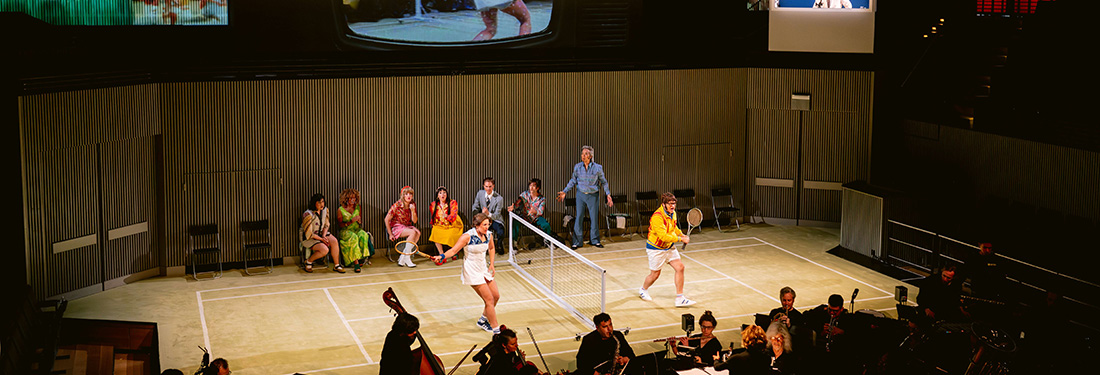
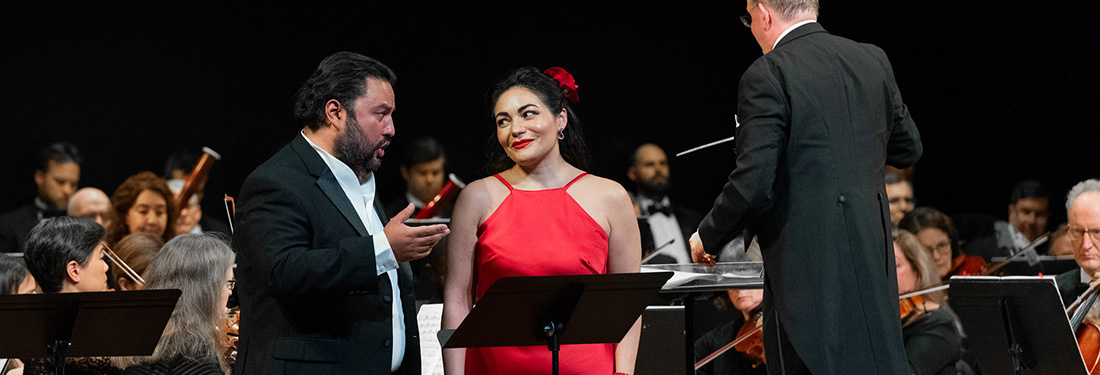
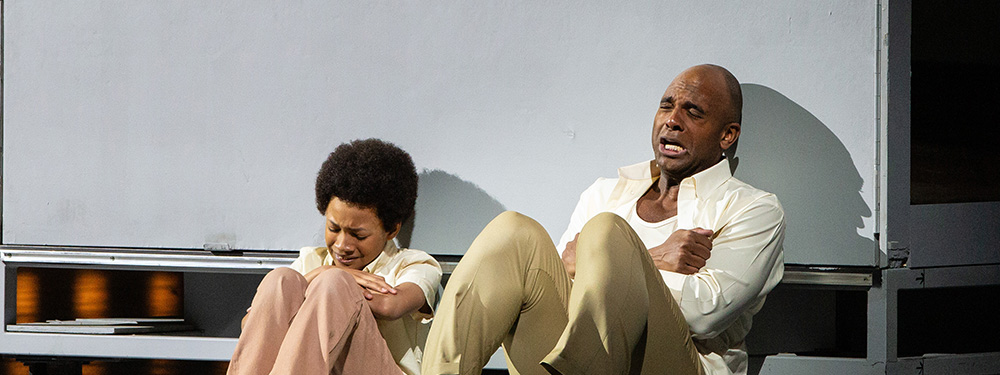
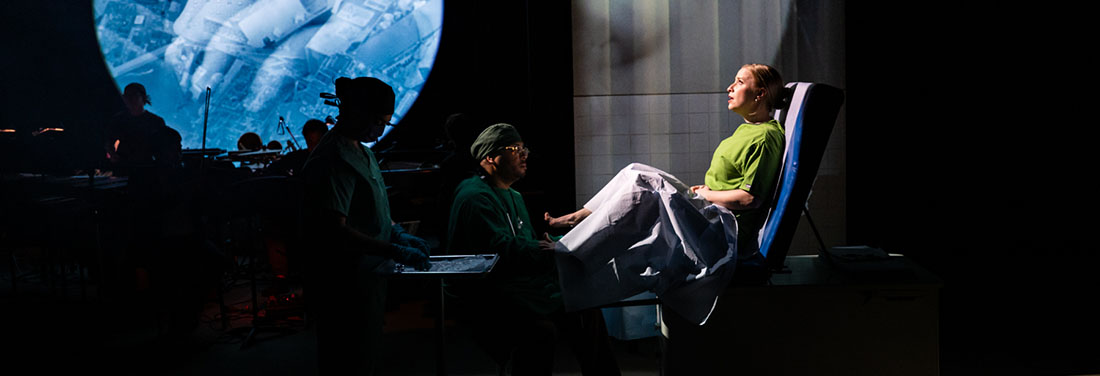
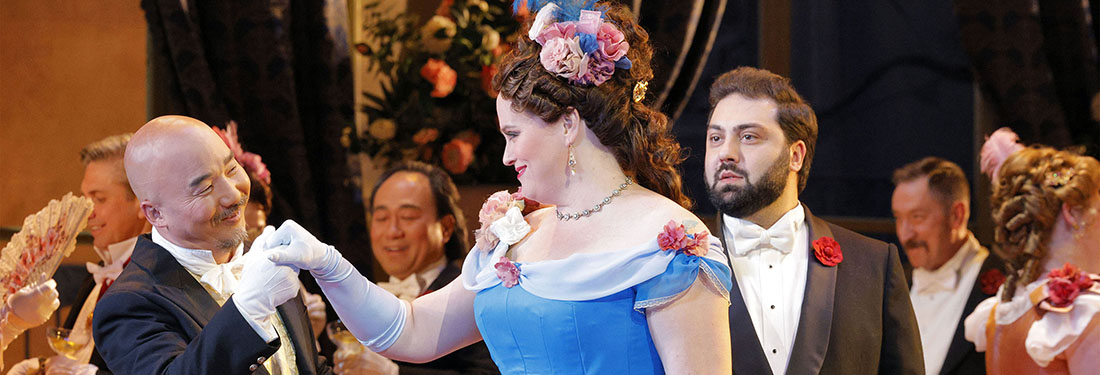
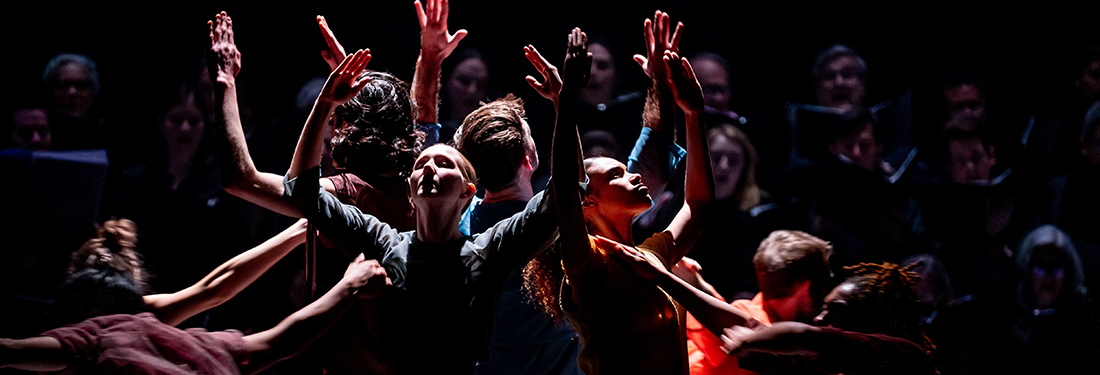
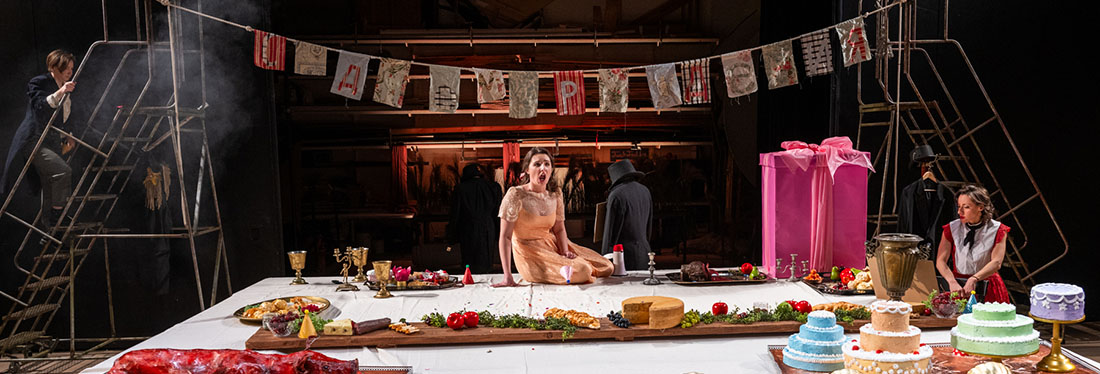
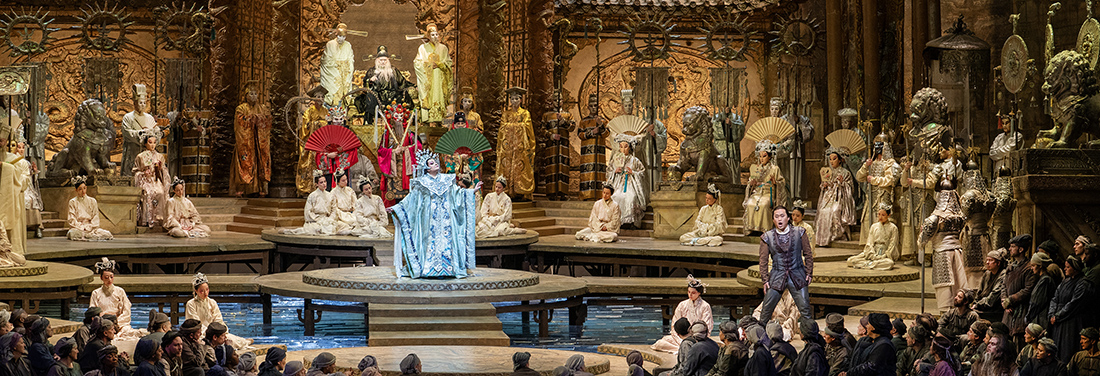
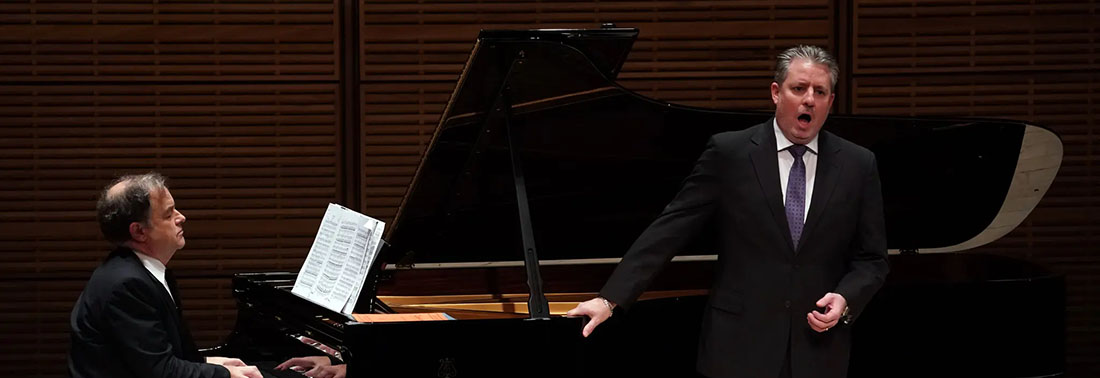
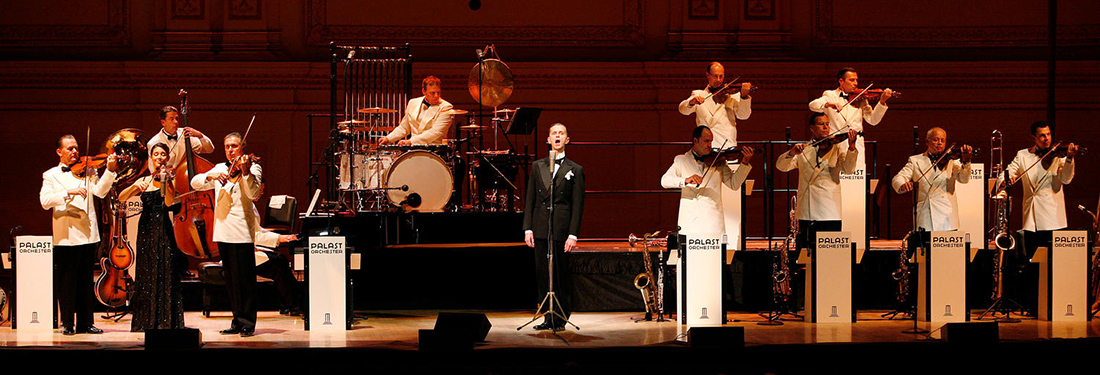
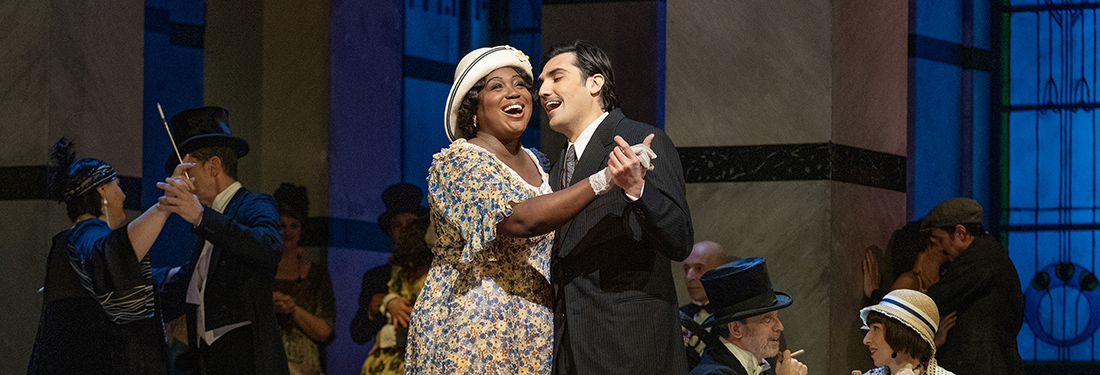
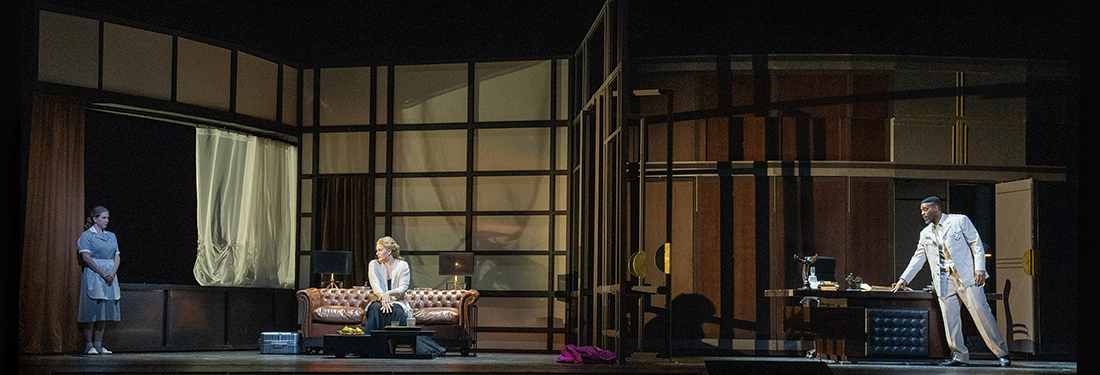
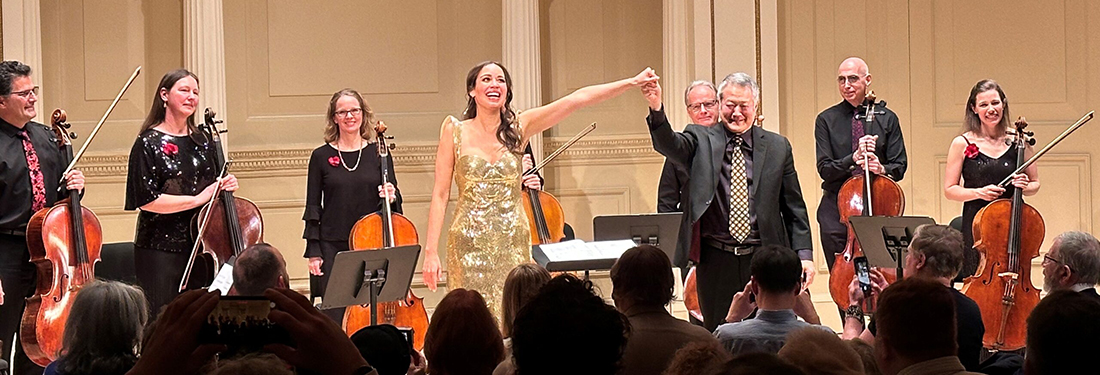
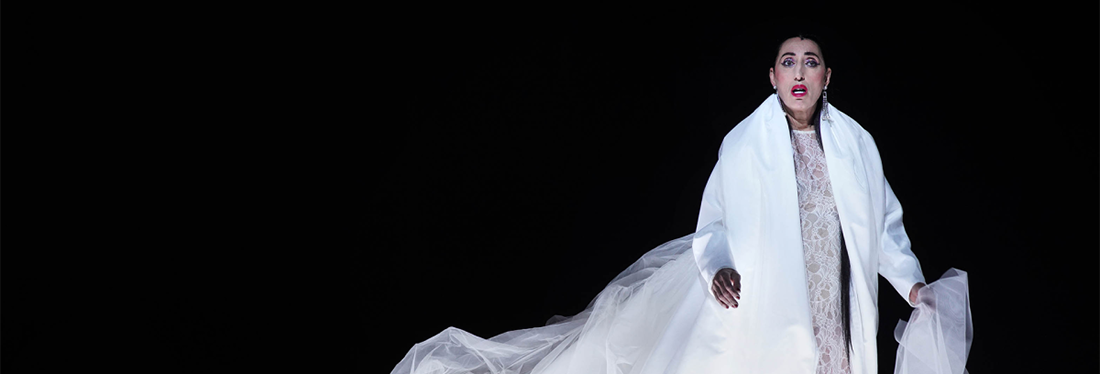
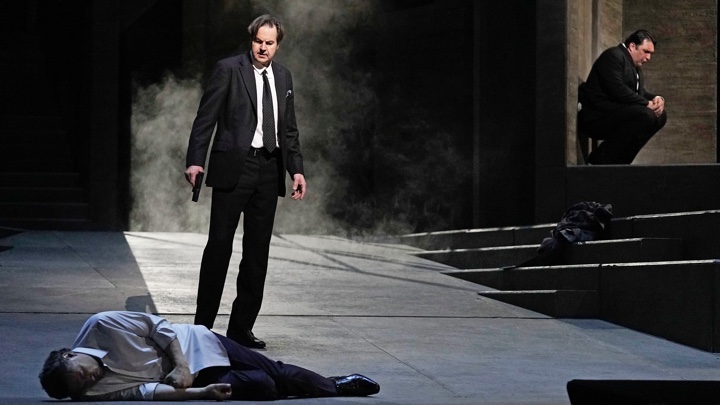
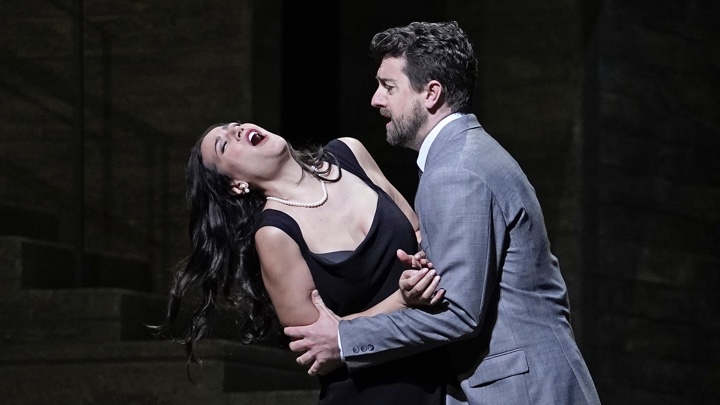

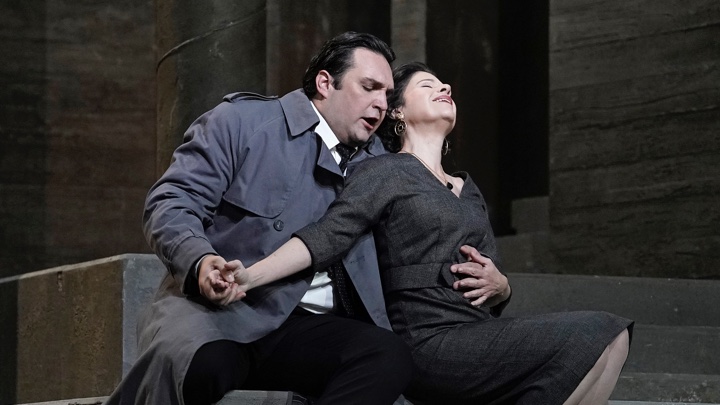

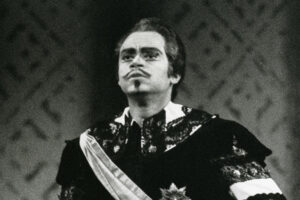
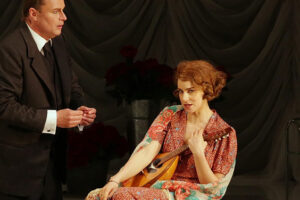
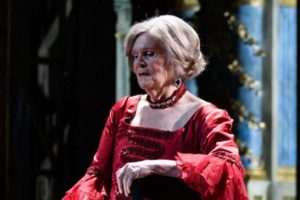

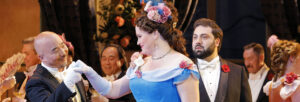
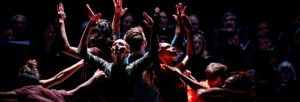



Comments